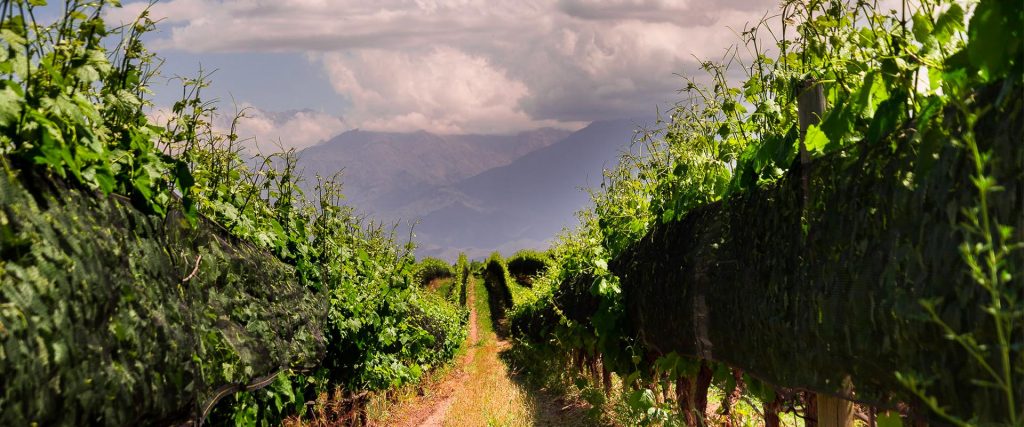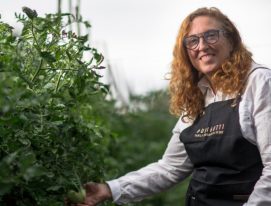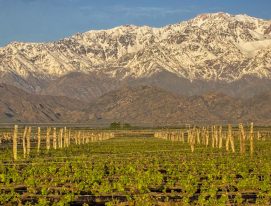The first ever report on organic vineyards from Argentina has been published, reflecting the growing demand for organic certified wines from consumers.
“We know that consumers are increasingly concerned about where the grapes used to make their favorite wines come from, and a commitment to the environment must be long term, we need to be aware of our obligation to make the world a better place for future generations,” explains Cecilia Acosta, the agricultural manager at the Avinea Group.
The group is the largest producer of organic wines in the country – owners of Bodega Argento in Mendoza and Otronia in Chubut – accounting for 422 hectares of organic vineyards from Argentina, and are also the organizers of Matriz Viva, a sustainability and regenerative agriculture program whose goal is to reach 650 hectares of organic certified hectares by 2025.
In addition to Avinea, 79 more wineries are organic certified and 69 of them export their products across the world to meet growing demand in strategic markets such as the European Union, the United Kingdom and Japan.
A few statistics from the IPSOS consultancy offer an idea of the scale of the trend: 33% of German and British consumers say they’ve drunk organic wine while in France that number rises to fifty per cent.
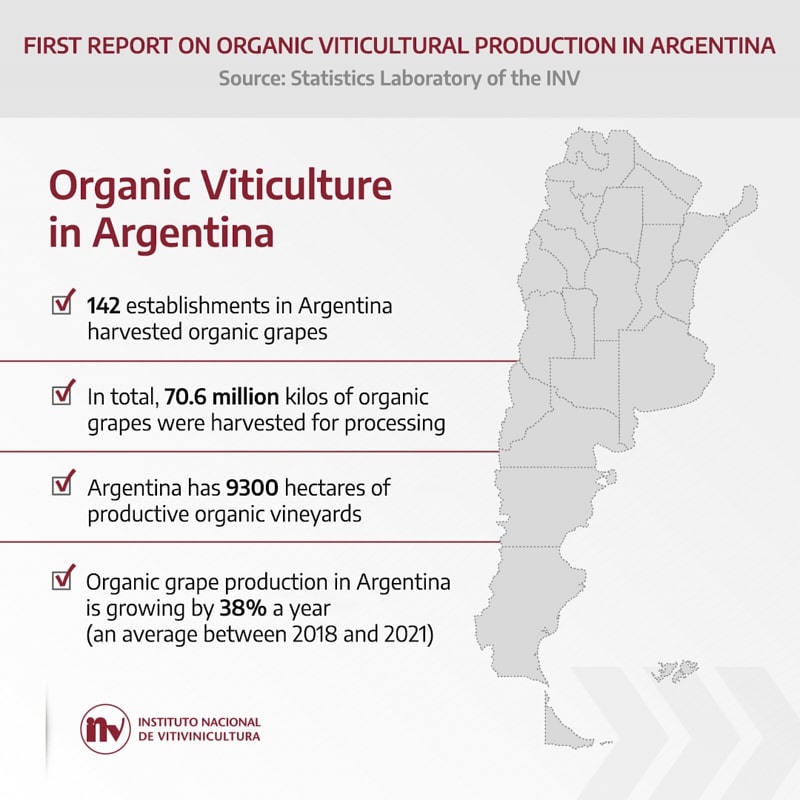
Organic vineyards from Argentina
Prepared by the Statistical Laboratory of the National Institute of Viticulture (NIV), the Report on Organic Viticultural Products in Argentina was recently published.
“For the first time, in the 2022 season we started to gather information about the entry of organic grapes and must to winemaking establishments,” explains Martín Hinojosa, President of the National Viticultural Institute.
“Provisional data from the year indicates that 142 establishments harvested a total of 70.6 million kilos of organic grapes. Of these 60.9% was harvested in Mendoza, with La Rioja coming next at 18.6% and San Juan third with 17.9%.” This reflects the growth of organic vineyards from Argentina.
Overall, Malbec accounted for 30%, Torrontés 9.5% and Chardonnay 5.5%.
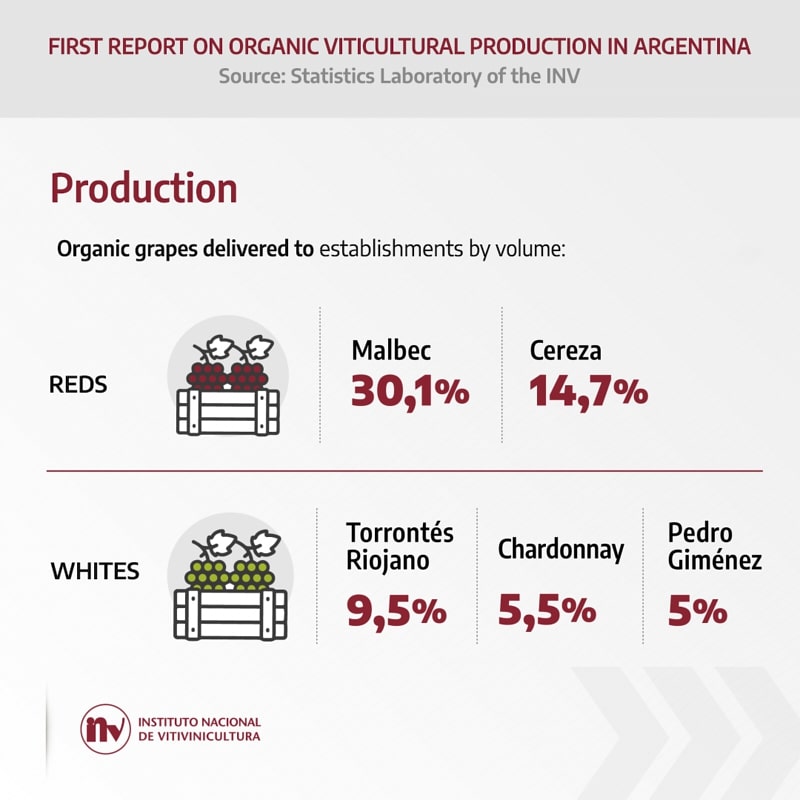
Organic wine from Argentina: a growing segment
“During the pandemic, people grew more concerned about caring for the planet and eating more healthily and with that demand for organic wines has increased considerably, accelerating a trend that was already present in different markets.
The drive to expand horizons into new markets with innovative, distinctive products is resulting in an increase in sales of these products by both value and volume,” Hinojosa went on.
Today, wine is the second most exported organic vegetable product in Argentina. According to data from the NIV, in 2021 11.1 million liters were exported to different international markets together with 2.4 million liters of concentrated organic must and 887 tons of organic raisins.
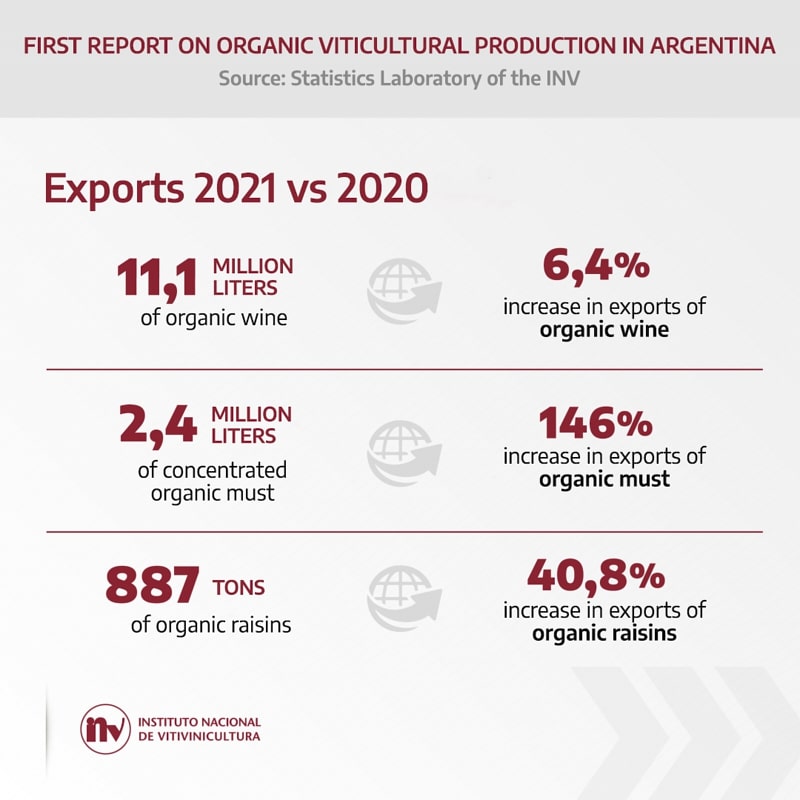
These figures represent 6.4% growth in international sales of organic wine, 146% in organic must and 40.8% in raisins compared to 2020.
The five leading overseas markets for these organic Argentine wines are Denmark (21%), Sweden (19%), the United Kingdom (13%), Germany (9%) and the USA. (6%).
“Achieving good yields of organic grapes comparable to conventional crops is the next objective to be met. Choosing the right varieties, soils and fertilizers will ensure that costs are the same or even lower than other methods,” said Hinojosa as the report was published. “The demand is there and will keep growing: organic products aren’t the future, they’re the present.”

